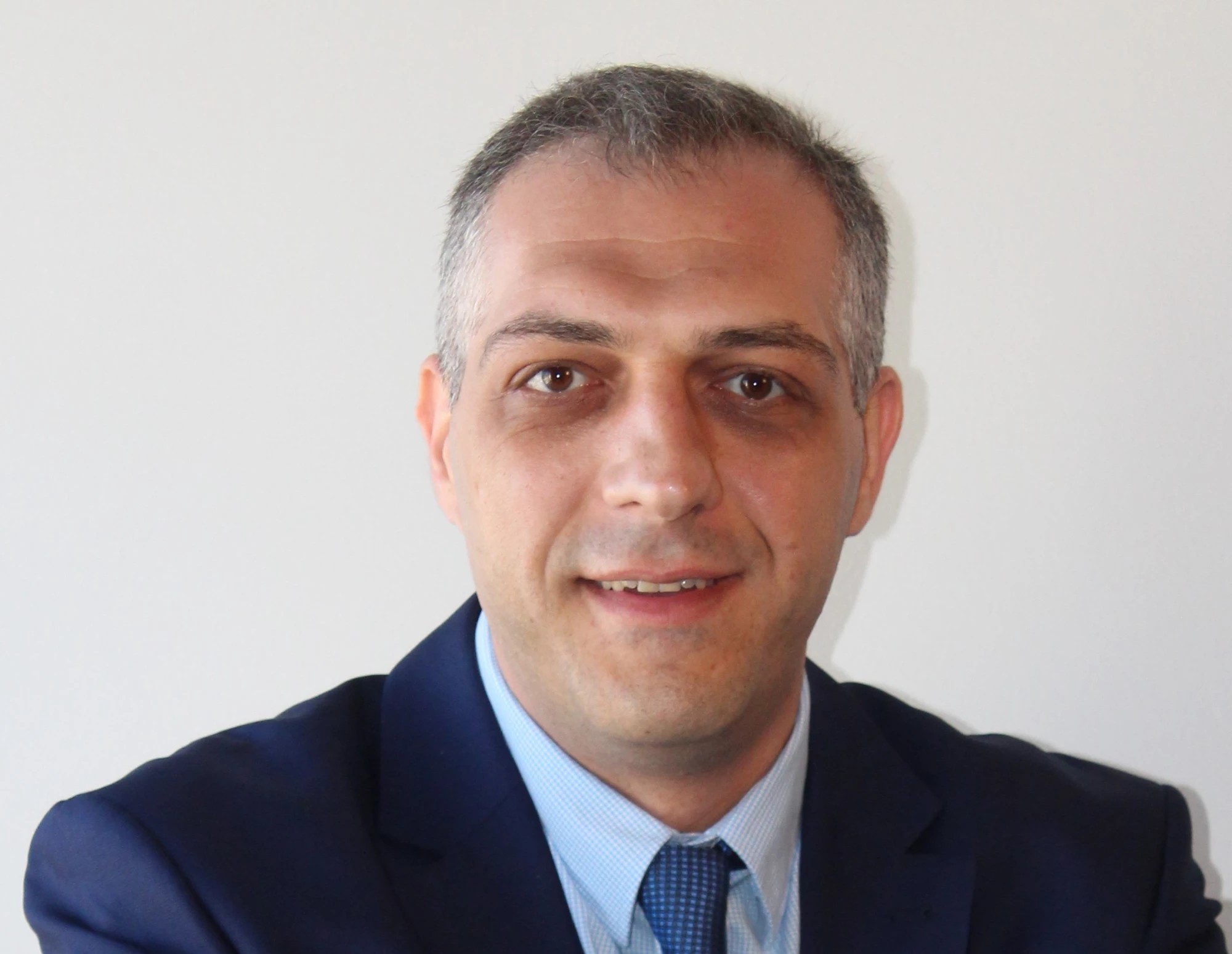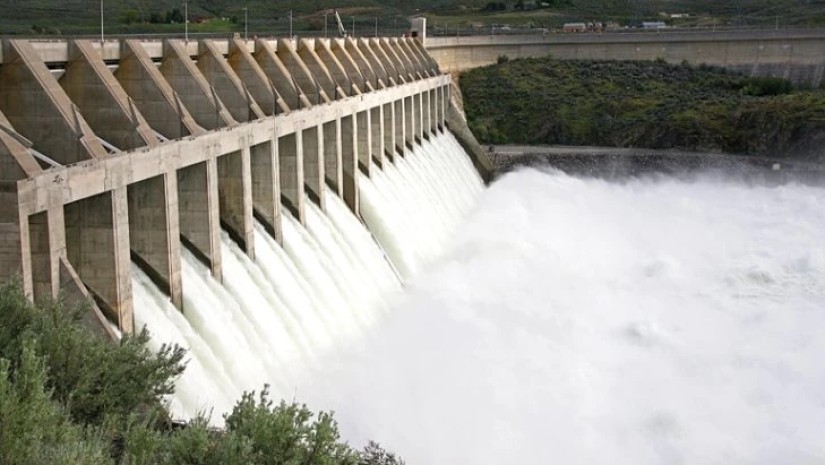Measures to be taken protecting investments made during the pre-construction phase of the power plant projects, - this is the name of the material prepared by Levan Kokaia, corporate lawyer at Czech hydroelectric energy companies and guest lecturer and trainer at GIPA. BMG offers the material unchanged:
Introduction
Presented article reviews two issues:
Qualification as an investment the performed work and applied costs accomplished during the pre-construction phase of the power plants operating on the renewable energy sources and the legal instruments to appropriately protect such investment;
Additional ways to ensure the legal security of investments in order to encourage renewable energies in Georgia.
Thematically relevant recommendations are presented at the end of both parts of article.
Protection of intellectual property rights of the project
Researches to be submitted within the framework of the pre-construction phase
Before it becomes clear whether each research which should be submitted during the pre-construction phase belongs or not to the intellectual property, it is necessary to determine their specificity. Basically, these researches are: pre-feasibility study on the potential power plant, hydrological and metrological data and primary data on the environmental impact. (Ordinance N556 adopted by the Government of Georgia (GoG) on 7.12.2022 on “Approval of the Support Scheme for Generation and Consumption of Energy from the Renewable Sources and Capacity Auction Rules”, article 8.1.2).
Each mentioned and related research is a product of the intellectual creation, as they are fabricated by one or another author, has an autonomous character and belongs only to the author. In its turn, research as an intellectual product is in a high quality protected by the law of Georgia on "Copyright and Related Rights" and numerous of the relevant international conventions.
Intellectual Property as an Investment
Approach of the legislation
On the second step it should be determined whether intellectual property belongs or not to the investment by the Georgian domestic legislation and the Energy Charter.
According to the Georgian law on “Promotion and Guarantees of Investment Activity”: “with the other sources, “an investment is “… know-how, experience and other intellectual values; other property or intellectual values or rights recognized by law” (article 1.2.c.d). Besides, investment income and other flows of capital can be: “charges for the rights of using property that is preliminarily determined as interest from profits gained from using another's property, including natural resources, copyright, patents (royalty payments), as well as payment of administration and other rents” (article 3.6.d).
1.2.2 Approach of the Energy Charter
Georgia is a member of the Energy Charter since 1995. In energy sector protection of investment is one of the key issues which is regulated by the Energy Charter.
According to the Charter: “Along with the other instruments, “investment” means every kind of asset, owned or controlled directly or indirectly by an investor and it includes intellectual property (I part, article 1.6)”. In addition, “Intellectual Property” includes copyrights and related rights, trademarks, geographical indications, industrial designs, patents, layout designs of integrated circuits and the protection of undisclosed information. The representatives recognize the necessity for adequate and effective protection of Intellectual Property rights according to the highest internationally-accepted standards (part I, article 1.12, “c”, “d”, “f”).
Considering Energy Charter as well as the legislation of Georgia, researches carried out during the pre-construction phase of the power plants are considered as an investment.
The quality to protect investment during the pre-construction phase in Georgia
According to ordinance N556 adopted by the GoG: “At the stage of preparation of the feasibility study, if the amount of the penalty imposed on the investor exceeds 50 (fifty) percent of the total pre-construction bank guarantee, the GoG has the right to unilaterally terminate the power plant feasibility study agreement. In such a case, the GoG will claim the total amount provided for in the bank guarantee, and the project and the relevant property (including the intellectual property related to the project) will be transferred to the state free of charge” (article 9.6).
Ordinance N515 adopted by the GoG on 31.10.2018 “Regarding Approval the rules and Conditions for Submission and Consideration to the Ministry of Economy and Sustainable Development of Georgia of the Proposals for the Construction, Ownership and Operation of the Power Plants which does not Represent a Public-Private Cooperation Project" includes a similar condition in relation to the intellectual property (article 7.7).
Intellectual property should be properly protected, because the renewable energy projects are individually assessed and they are distinguished by the specificity of the above-mentioned researches. As a result, in a competitive environment, the deprivation of the intellectual property rights causes significant threat for the security of renewable energy investment climate.
Recommendation to protect the investment made within the framework of the pre-construction phase
Based on the above-mentioned ordinance confiscation of the investment contradicts the following provision of the Law of Georgia on "Promotion and Guarantees of Investment Activity": “Deprivation of an investment may take place only in cases directly determined by law, by court decision and upon urgency determined by the organic law and only with appropriate compensation” (article 7.2).
Besides, Energy Charter obliges each contracting party to encourage and create stable, equitable, favorable and transparent conditions for investors of other contracting parties to make investments in its area. (Part III, article 10.1).
Existing standard of investment protection strongly contradicts the approach of the Energy Charter. It is noteworthy, that based on the mentioned ordinances adopted by the GoG an agreement/memorandum can be concluded between the interested investor and the GoG. Unfortunately, these ordinances nowhere contain a condition which obliges GoG to protect investor’s interests and in particular to protect their intellectual property rights during the pre-construction phase. If we conclude that the researches carried out during the pre-construction phase represent intellectual property and consequently an investment, there arises necessity to adequately protect investment by the secondary legislation. In order to ensure the aforementioned, appropriate amendments should be made in the specified ordinances of the GoG, moreover considering the legal hierarchy, international acts and agreements and the law of Georgia are higher than the ordinance of the GoG.
Additional mechanisms to protect investor
Description of the problem
In Georgia the construction of hydroelectric stations with the installed capacity of 5 megawatts or more and in some cases with the installed capacity from 2 to 5 megawatts is associated with a number of difficulties. In its turn such reality is a significant obstacle to achieve country's energy independence and it also causes reduction the value of investment made during the pre-construction phase. The reason is that one of the basic prerequisites for construction permit of such power stations is the adoption of an environmental decision, which is issued by the legal entity under public law within the system of the Ministry of Environmental Protection and Agriculture of Georgia called the National Environmental Agency (hereinafter referred to as the “Agency”). According to the Environmental Assesmnet Code of Georgia (hereinafter referred to as the “Code”): “If the implementation of the activity requires a licence/permit provided for by the legislation of Georgia that depends on an environmental decision and/or requires the completion of any stage of such licence/permit, the licence/permit may enter into force and/or the respective stage of such licence/permit may be completed only after the environmental decision has been made” (article 5.2). While issuing this decision Agency should take into account the environmental impact assessment report (hereinafter referred to as the "EIA"). EIA is a procedure for the identification and examination of potential impacts on the environment, based on respective studies for the planned activities that may have significant effects on the environment and that fall within the scope of the activities. Construction and/or operation of the hydroelectric power stations operating at the above-mentioned capacities belongs to this activity” (article 3.d.; annex I, 25 clause; annex II, 3.8 clause). In addition to this, researches included in the EIA report belong to the intellectual property. Along with other data EIA report should include information concerning the opinions and comments revealed by the representatives of the interested community and its assessment. This process is accomplished by the public hearings with the participation of the interested persons.
An obstacle to install new hydroelectric power stations is the frequent negative attitude expressed by the community living in the different geographical areas of Georgia towards the implementation of a distinct renewable energy projects. That’s why the Agency does not issue environmental decision, which is essential factor to further progress of the project.
Unfortunately, the Code ambiguously regulates issue concerning to the mandatory power of the consideration the revealed opinions and comments by the society. On the one hand, Agency in case of a relevant basis takes into account the opinions and comments presented by the society (article 5.111), on the other hand, Agency is obliged to reflect the information about the consideration of opinions and comments presented by the society in the justification of the act on issuing an environmental decision (article 13.3.a).
In addition, the Code does not regulate such important issues as:
the criteria which should be the basics for the Agency relyin on the assessment the plausibility and objectivity of the fixed comments;
obligation of the Agency to make a clear decision when a certain part of the society positively evaluates the expediency of the project implementation and another part negatively assesses it. In particular, the project should be assessed by the defined proportion of the participants’ votes and accordingly, the Code should clearly determine the certain number of votes which will be the obligatory for Agency;
the case when alternative research was implemented by the initiative of those persons, which were against to the further implementation of the project and this research fixed the different results. Therefore, the code should unambiguously answer to the question - in such a case, would the Agency still rely on the opinions of the opposing parties or on the results of alternative research? At the same time, if the results of the alternative research partially share the results of the research conducted by the investor, in such a case which resuresults should be the mandatory for the Agency to make a correct decision and why? The Code should rationally answer on all of these questions.
2.2 Recommendations
In order to improve the mentioned situation, I present the following recommendations:
There should be writer a provision in a code, which clearly defines recommendatory and not mandatory nature of the results of the public hearings for Agency;
Within the framework of Code, it is essential to develop new legal clauses which sets objective and convincing criteria of evaluation the results of public hearings. Besides, to properly regulate the results of the evaluation the accomplished alternative researches and to define the quantitative proportions of opinions expressed during the public hearings are the issues which should be also appeared in the Code;
3. Due to the facts that environmental decision-making is a prerequisite for the issuance of the licenses/permits and also, the construction of a number of potential hydroelectric plants has been delayed because of negative results of public discussions, it is necessary to elaborate and enact appropriate legal clauses in the ordinance N 515 and in the Code. According to these new legal norms GoG and the Ministry of Environmental Protection and Agriculture of Georgia based on the objective criteria should be obliged to assist investors involved in the renewable energy projects to issue the environmental decisions.
Levan Kokaia currently serves as a corporate lawyer at Czech hydroelectric energy companies and as legal counsel of the law firm Suknidze & Partners. He holds a master’s degree in law, has written more than 50 publications, and is a guest lecturer and trainer at GIPA.























